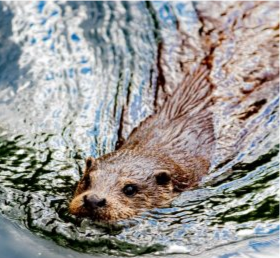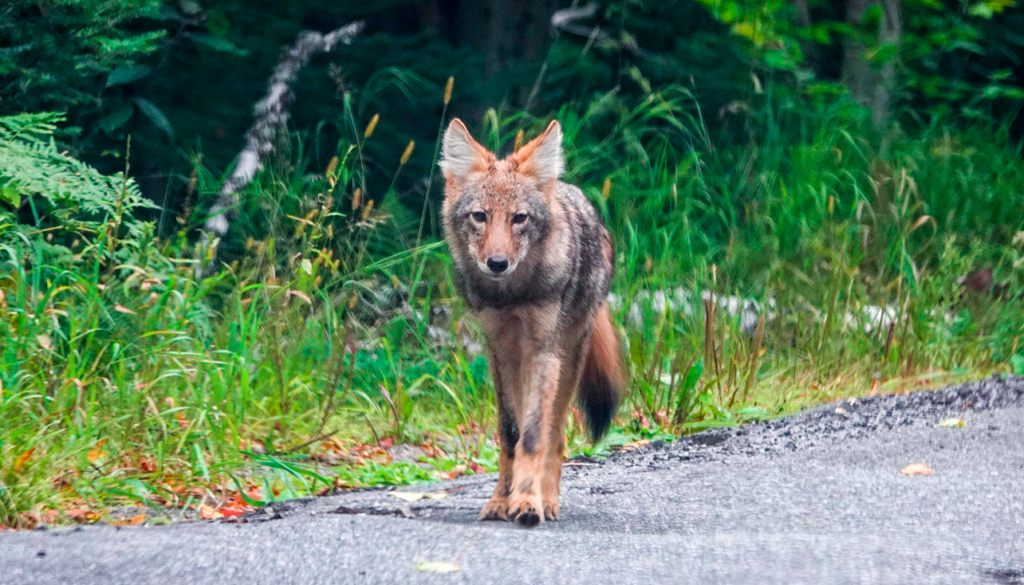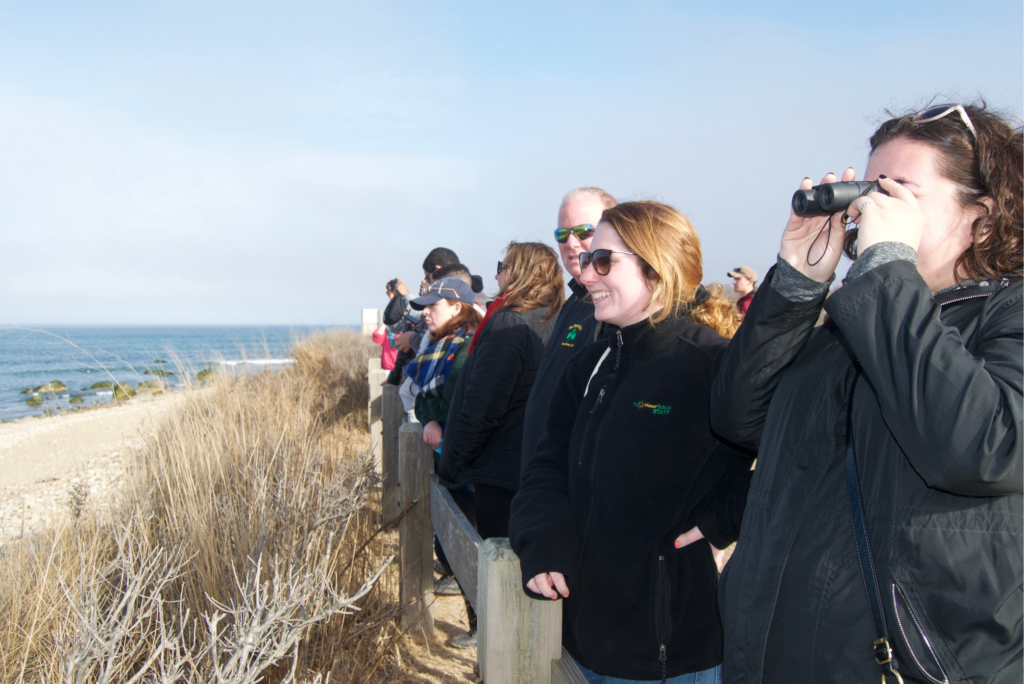
Species Highlight for the Season
Join community scientists from around Long Island in monitoring the occurrences of River Otters in our region using the Otter Watch Survey!
From forest finds to beach discoveries, the scenic trails and waters around Long Island draw locals and tourists. Spotting wildlife in their natural habitat creates an even stronger lure to enjoy the outdoors. Long Island is home to a treasure trove of biodiversity. Unfortunately, some human activity has tainted our natural resources, so it is important to protect species and restore habitat that is degraded or lost. Scientists and environmental groups use wildlife monitoring surveys to understand a species’ population and the habitat they rely on. With this knowledge, we can outline a better future for our ecosystems and live in balance within them.

Be a Community Scientist
You can monitor for wildlife and contribute data to these surveys. While you are hiking or boating in your favorite bay around Long Island – keep an eye out for wildlife and evidence of their activity. Community scientists like you are instrumental in helping us collect the data we need to protect and restore wildlife and their habitats. We have made it easy for you to record and share your sightings. The Wildlife Monitoring Network (WMNLI) is a ‘one-stop-shop’ for wildlife monitoring surveys that are conducted for species found throughout Long Island. Whether you need to record data for more than one species or want to learn about the different community science projects near you, these surveys are now all in one place! Explore what is offered for each species – you’ll find workshop trainings and educational resources to help you get started.
Please Note:
- Do not handle or go near wildlife, for your safety and theirs!
- The time of year is important to consider when monitoring. Note the active season for each species.
- If you are unsure of how to identify a sighting, contact the host organization or review the provided resources before you submit data.
- Note that certain surveys require a type of training to participate.
- Rescue information is provided for certain species if found injured or distressed.

Past Events
Subscribe to Email
Enter your email address to receive updates about the Wildlife Monitoring Network
